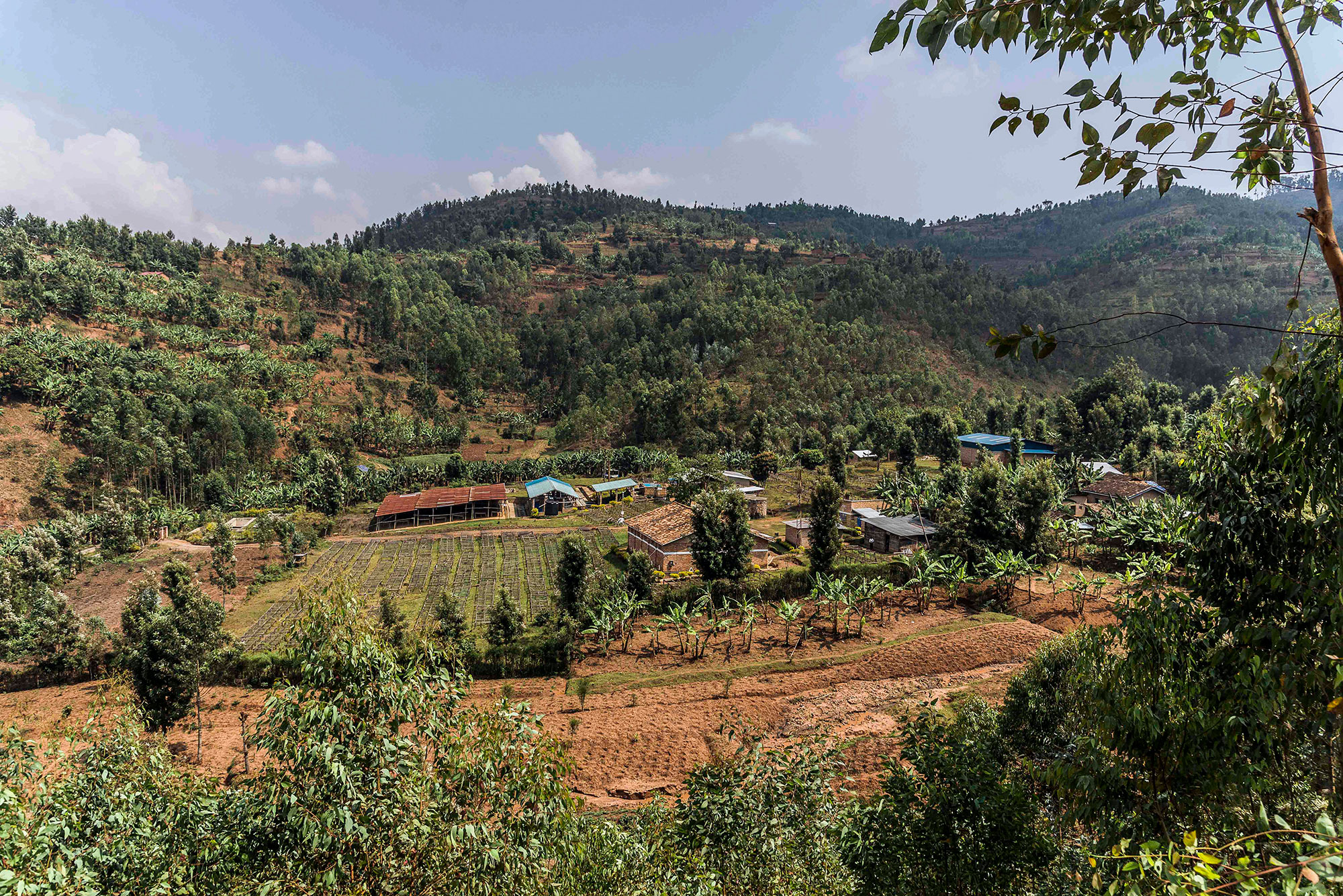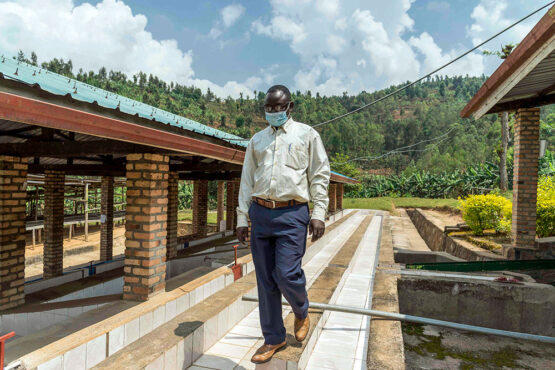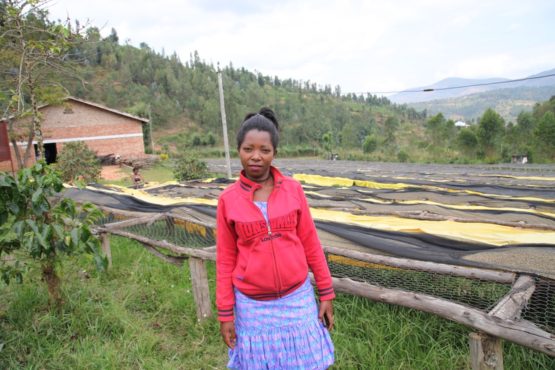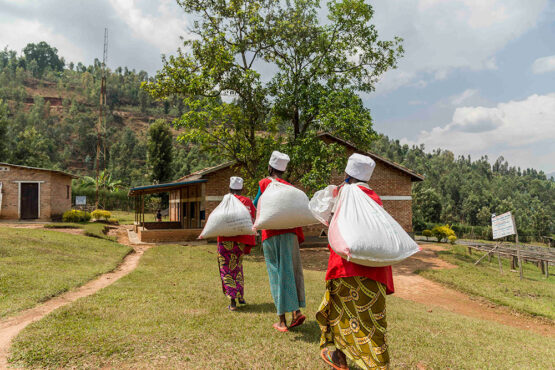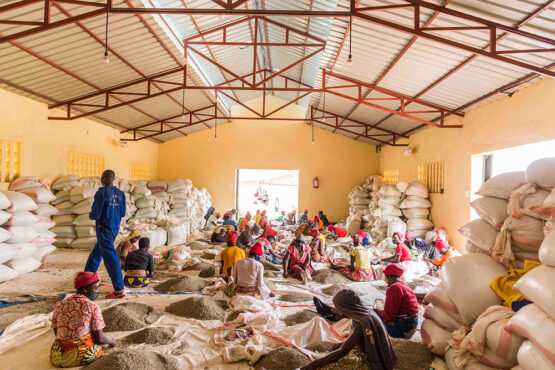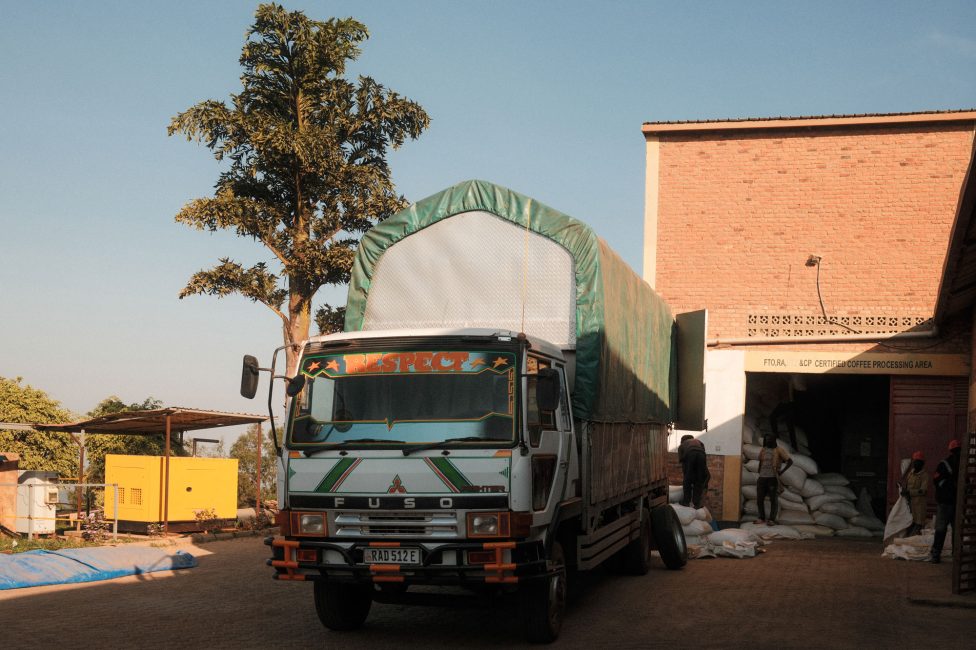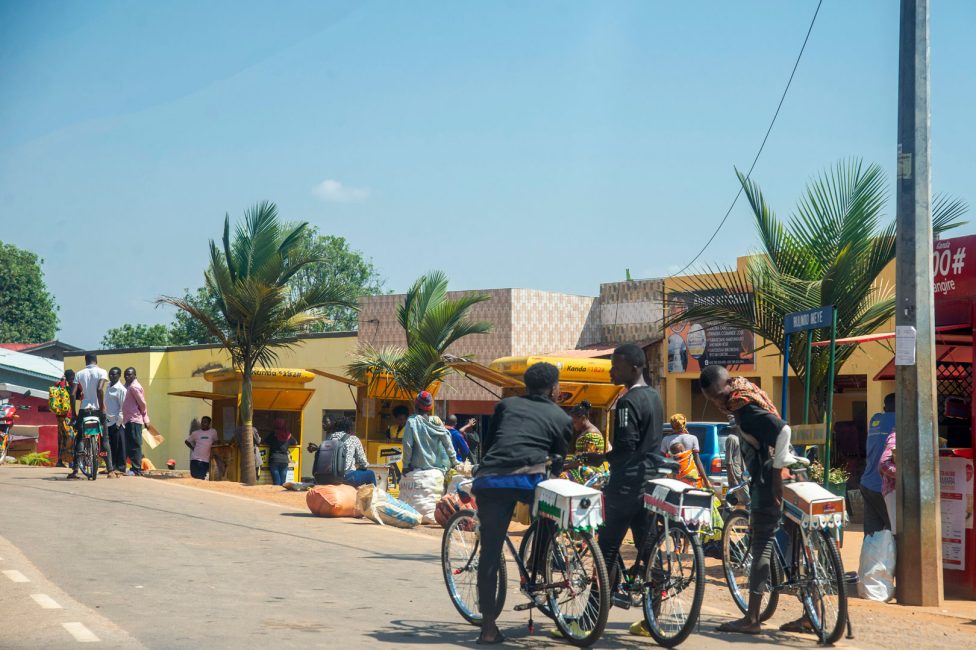Koakaka Cooperative
For nearly 20 years, the Koakaka Cooperative has worked to improve the livelihood of its members whilst preserving the local environment. Though a delicate balance is necessary to excel at both, the quality of the coffees they produce is proof that their efforts have been successful.
In the local Kinyarwanda language, ‘Koakaka’ is an acronym for ‘Cooperative of Coffee Growers of Karaba,’ referencing the town where the cooperative is based. Koakaka was established in 2002 when three farmer associations (Karama, Kiyamakara and Rukondo) merged with the purpose of strengthening their position in the local coffee industry and broadening their members’ prospects in international markets. The cooperative now owns and operates three washing stations: Karambi located in Huye District, and Muganza and Gaseke, both in Nyamagabe District.
Koakaka is made up of 1,316 small-scale coffee producers, around half of whom are women. This member-owned cooperative is managed by Safari Bonaventure, who has held this position since 2010. He is supported by Joie Claire Muraketete, who is the Head Agronomist and oversees quality control and production. They lead the cooperative with a simple mission in mind:
- To produce exceptional coffee
- To consistently improve the welfare of their members and increase jobs in every region they operate
- To actively protect the environment
Koakaka focuses their efforts in Rwanda’s Southern Province, a region with ideal conditions for growing quality coffee: high elevations, consistent rainfall, and mineral-rich, fertile soil. Like most farmers in Rwanda, members grow coffee alongside other subsistence food crops such as maize, sorghum and beans. To encourage improved farming practices, the cooperative continuously provides its members with agricultural training and access to discounted fertilisers and organic pesticides. This strategy has worked. Many of the coffees produced by cooperative members have performed exceptionally well in Rwanda’s prestigious Cup of Excellence, and have been finalists in seven of the last ten competitions. In July 2016, the farmers of Koakaka’s Karambi washing station also won the RWASHOSCCO Coffee Excellence Award, taking home 1st place with a brilliant score of 90.3.
By becoming members of Koakaka, farmers are able to process their cherries centrally and combine their small, individual crop into volumes that are large enough for export, providing a substantial boost to their earning potential. To further improve on this, the cooperative built a dry mill in 2019, which has given members even more control over the quality of the coffee processed. The Koakaka Coffee Dry Mill is a significant milestone for the cooperative and a commendable investment that has helped create jobs among the local community of Nyamagabe District.
Cooperative members also benefit from a number of services, including financial support for school fees and health insurance at no cost. The cooperative provides fresh water to the communities it works with, and free access to Karambi washing station’s power grid to households in the surrounding area. Koakaka, which has been Fairtrade certified since 2004, also gives its members access to a credit fund for home loans and farming equipment at zero interest. Members and employees also receive a premium for their role in the cooperative, in the form of a second payment after the busy harvest period.
Like most cooperatives in Rwanda, Koakaka recognises the importance of protecting the environment as a way of ensuring the longevity of the local coffee industry. In 2017, the cooperative became UTZ and Rainforest Alliance certified, and in 2020 the Karambi washing station became certified Organic. Not only have these certifications added value to the coffees the cooperative produces, but they have also set an example of the type of practices all members should ideally follow.
Most farmers that contribute to Koakaka live near the Nyungwe rainforest, and the cooperative encourages its members to protect the region’s biodiversity, since it enriches the soil and provides coffee trees with natural pollinators. The cooperative also actively educates farmers on the benefits of intercropping, as it allows for edible crops and shade trees to be grown alongside coffee trees. Both initiatives result in higher yields for the cooperative’s members, lower the risk of food insecurity in farming communities, and importantly, are pivotal to the conservation of native flora and fauna.
For 2022, the cooperative will begin distributing hybrid coffee variety RAB-C15 among its members (particularly to those who are part of the cooperative’s women’s groups), which has recently been approved and released by Rwanda’s Agricultural Board. Additionally, to encourage more women producers to follow organic practices at their farms, Koakaka has invested in raising pigs whose manure will be used as fertiliser. The cooperative has also introduced waste water treatment facilities at all of their washing stations to promote environmental sustainability.
HOW COFFEE IS PROCESSED BY KOAKAKA COOPERATIVE
This washed coffee was processed using clean, natural spring water from the surrounding mountains. The team at Koakaka are meticulous in their approach to processing, to ensure the highest coffee quality possible is achieved.
- Members of the Koakaka Cooperative are trained to only select the very ripest coffee cherries from their trees. During the harvest, cherries are delivered daily to the Karambi Washing Station via foot, bicycle or driven by truck from a local pick-up point (they have 70 pick points in the surrounding area).
- On delivery, the cherries are inspected and sorted to ensure only the very ripest cherries are processed. They are then sorted by weight (and any floaters removed) and pulped on the same day—almost always in the evening—using a mechanical pulper that divides the beans into three grades. After pulping the coffee is fermented overnight in tiled tanks (for 12 -18 hours) without water and then graded again using floatation channels that sort the coffee by weight (heaviest usually being the best).
- The beans are then soaked in clean water for a further 14 hours, before being moved to raised screens for ‘wet-sorting’ by hand—this is a task almost always carried out by women.
- The sorted beans are finally dried in the sun on raised screens (‘African beds’) for two weeks. During this period, the coffee is turned several times a day by hand to ensure the coffee dries evenly and consistently. It is also sorted constantly, with any defects removed.
- Once dry, the coffee beans are stored in parchment, in carefully labelled day lots, until they are ready for milling and export. The coffee is then sent to the Nyamagabe District (where Koakaka’s dry mill is found) and prepared for export.
